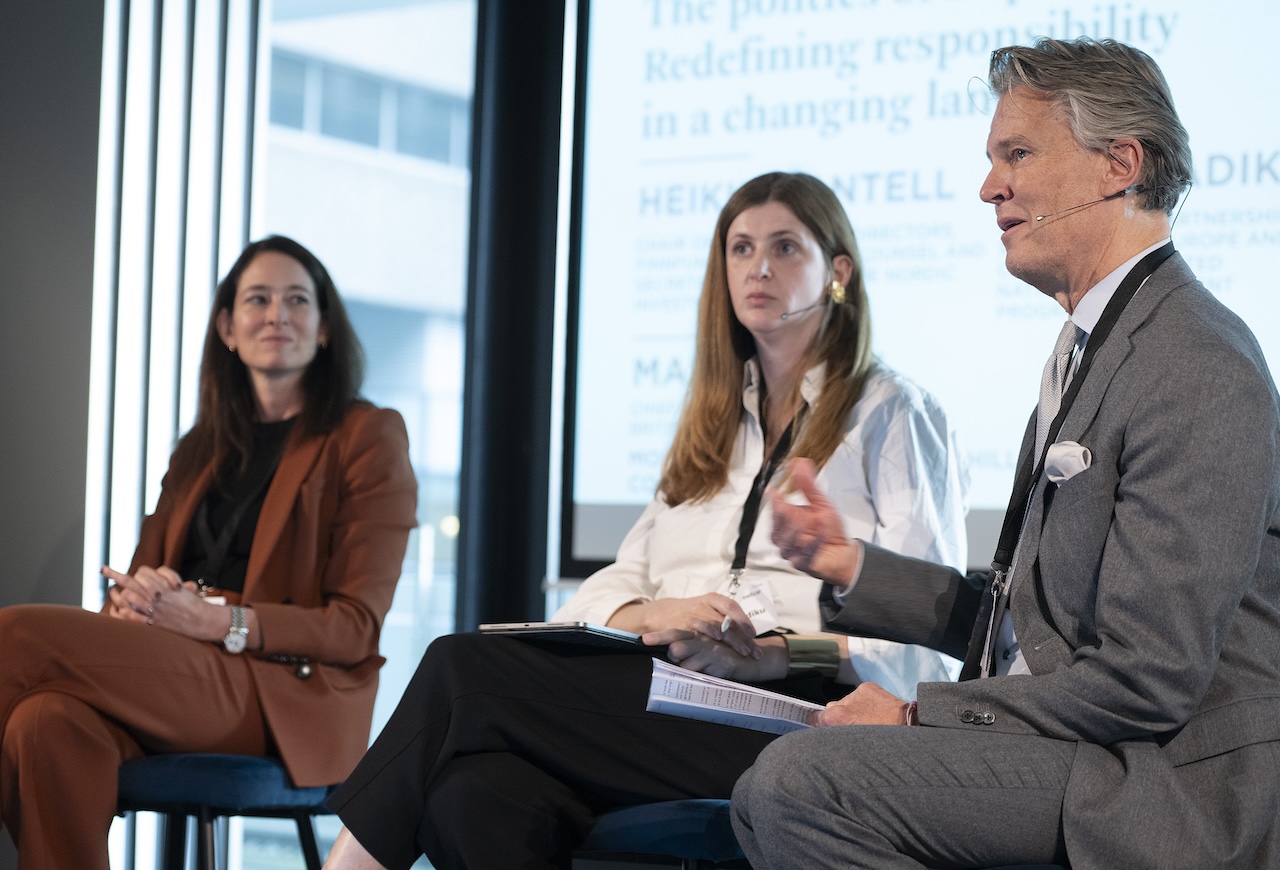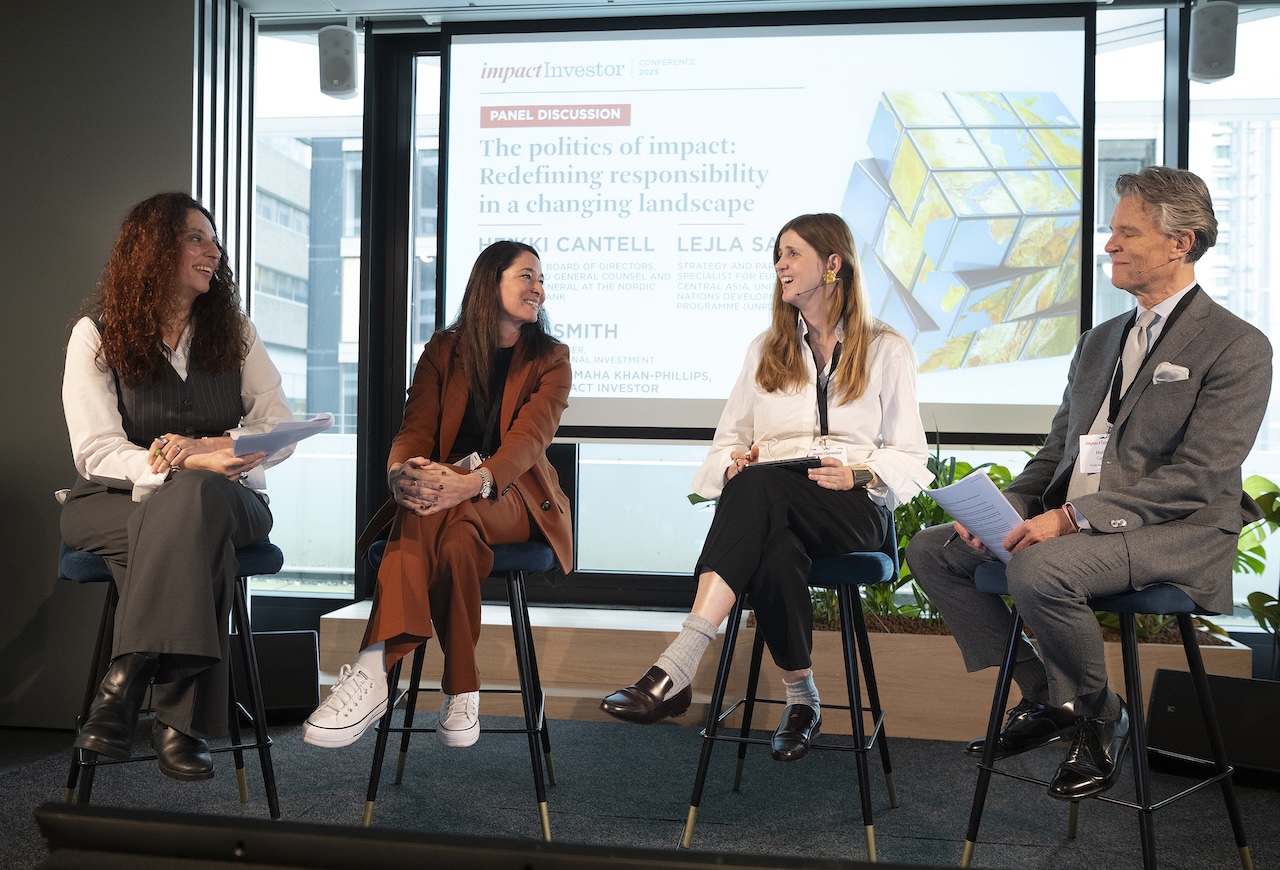In a world of political and policy headwinds, development finance institutions are aiming to mobilise private capital and innovate to build impact, said speakers at the Impact Investor conference.

Development finance institutions (DFIs) and other impact stakeholders have entered into a new era, a period where capital is restricted and more innovation is needed, said speakers during a panel discussion, ‘The politics of impact: Redefining responsibility in a changing landscape’ at the fourth Impact Investor Conference in The Hague on 11 November.
The panel explored the vital role that development institutions and others are playing in a shifting political context, examining how political agendas influence the mobilisation of private capital for public good, and what this means for the institutions working on the ground.
Maria Smith, chief impact officer at British International Investment, the UK’s DFI, said that the organisation was developing its strategy for the next five years, focusing on its core competencies, and in areas where it has a proven track record for generating financial returns as well as strong impact returns. BII is also going to have an even greater focus on mobilising capital from investors.
“This is a pivotal moment, but the good news is that we’ve been around for over 75 years, so this isn’t the first cycle we’ve seen, and we’ve figured out how to be agile and to innovate,” she said.
While BII has historically focused on private sector investments, rather than working on investment policy frameworks with authorities in countries where it is investing, Smith said its role as a catalyst for private capital requires a holistic approach.

“What we’re seeing is that if we really want to make change and pull in more commercial capital, especially in emerging markets, we’ve got to help create a more investable universe,” she said.
She cited the example of BII’s work with regulators in Nepal to reduce the bottlenecks holding back foreign investment in the country, and said that BII is working in other markets to shape local pension fund regulations to allow greater investment in some of its platforms.
Development funding
Lejla Sadiku, strategy and partnership specialist for Europe and Central Asia at the United Nations Development Programme (UNDP) highlighted a number of trends impacting development funding.
“We are seeing securitisation of aid, a shift to blended finance instruments and overall deprioritisation of aid due to the public finance pressures in traditional donor countries,” she said.
Sadiku said that improved coordination between organisations with different project cycles and priorities was sometimes needed to maximise impact on the ground.
“It is important that agility is built in. In my experience, there’s definitely space for improvement, because, while all partners come in with good intentions, there is space for more cooperation among others in aligning their project cycles,” she said.
It is also important that blended finance or other types of capital flowing into countries actually support the business ecosystem as a whole, amplifying existing initiatives rather than replacing them, according to Sadiku.
“When we’re working with startups, one of the key asks is to provide a platform to amplify their voice and connect to others working on similar problems. That should be part of the strategy for impact investors and other types of investors,” she said.
Private sector collaboration
Heikki Cantell, chair of the board of directors at Finnfund, and general counsel and secretary general at the Nordic Investment Bank, said that Finnfund has adjusted to the new political realities of DFI funding through greater collaboration with private investors over recent months. For example, the organisation has established a Digital Access Impact Fund to mobilise private capital to support digital, financial and gender inclusion in underserved regions in Africa, Asia and Latin America, which achieved a first close of €80m in August.
“It’s been successful and is a really encouraging example, so there will be more to come, certainly. It has proved a wonderful way to bring us together with private sector investments.”
He said that while DFIs need to be responsive to the aims of their shareholder governments, they also need to provide guidance.
“My experience is that we very much need to listen to the owners, but we can send messages to them – it’s a two-way street. They do listen and they know that we know more about what is happening in the field. They actually want to understand those realities and make sure their policies are informed by accurate information. So, we shouldn’t be too shy and think that it’s just a top-down process. We should be active,” he said.






